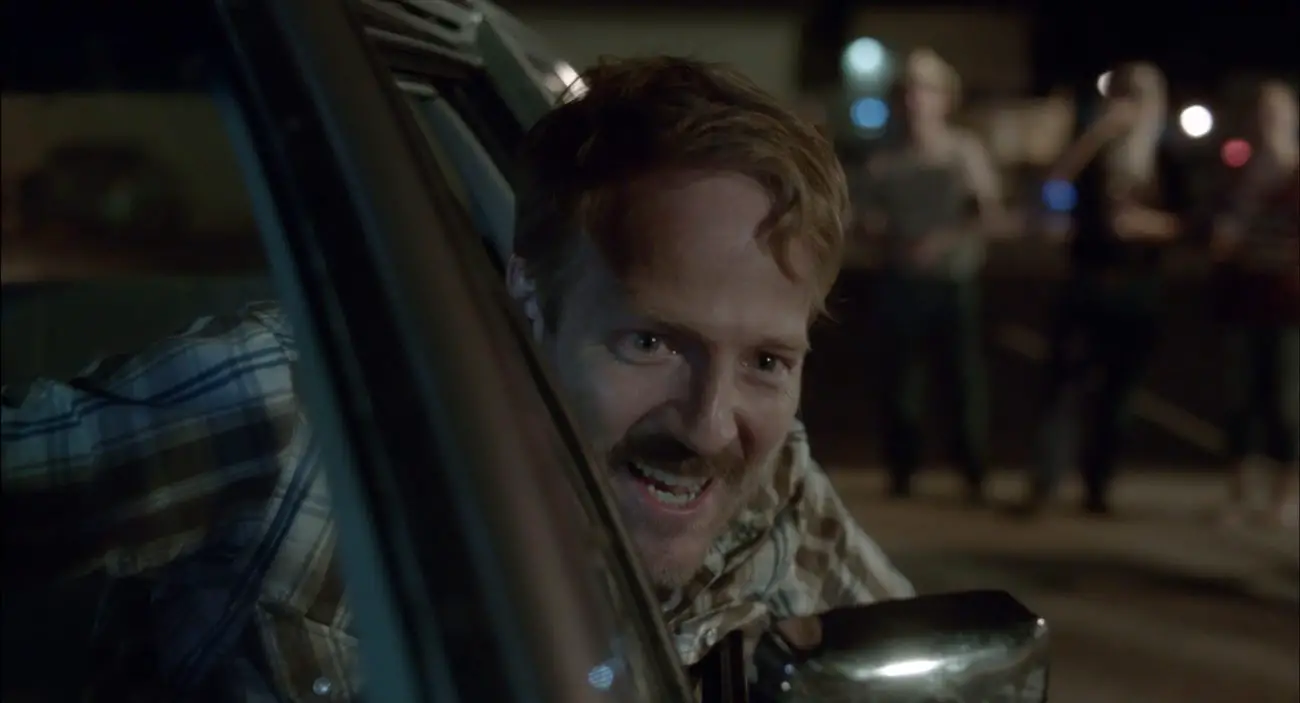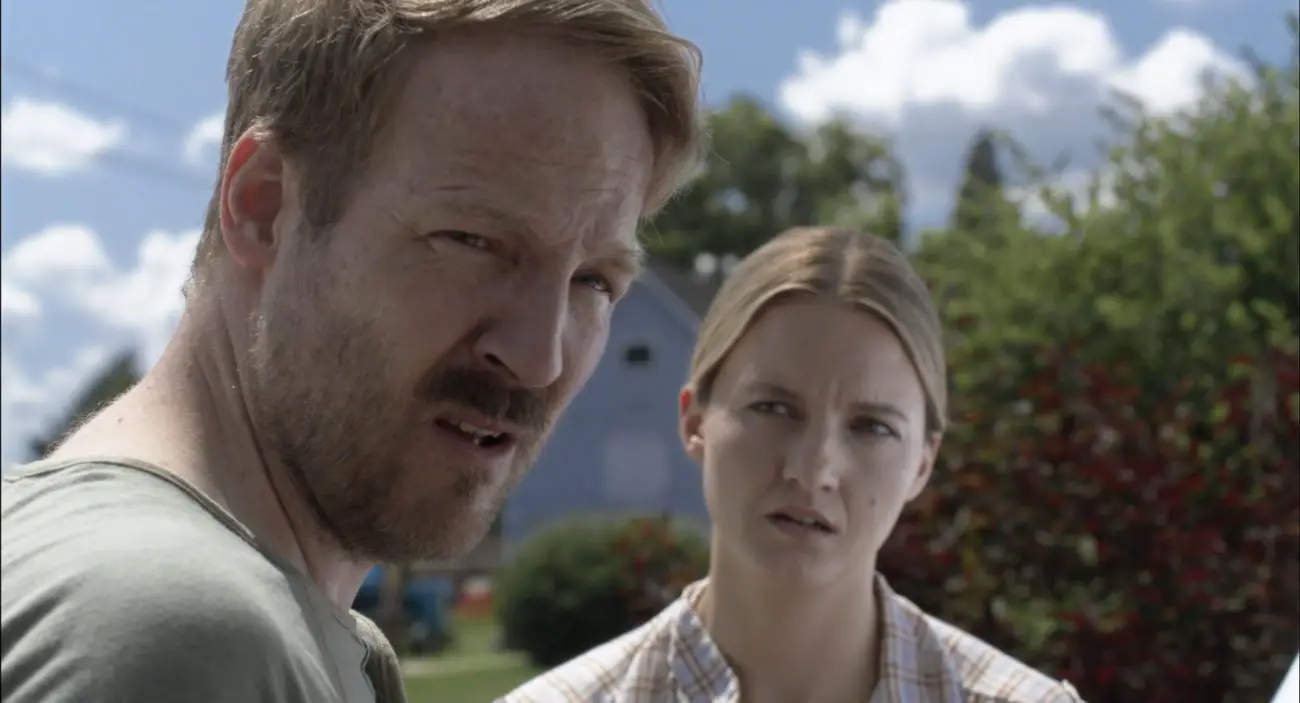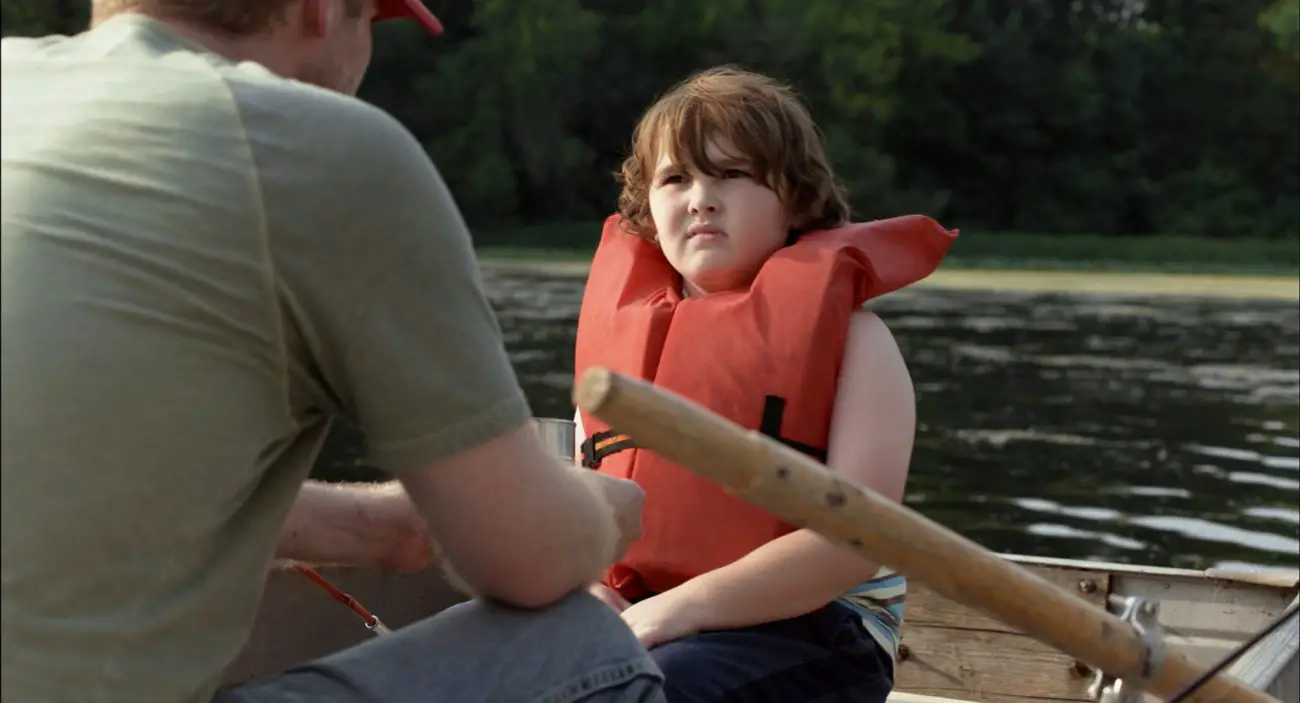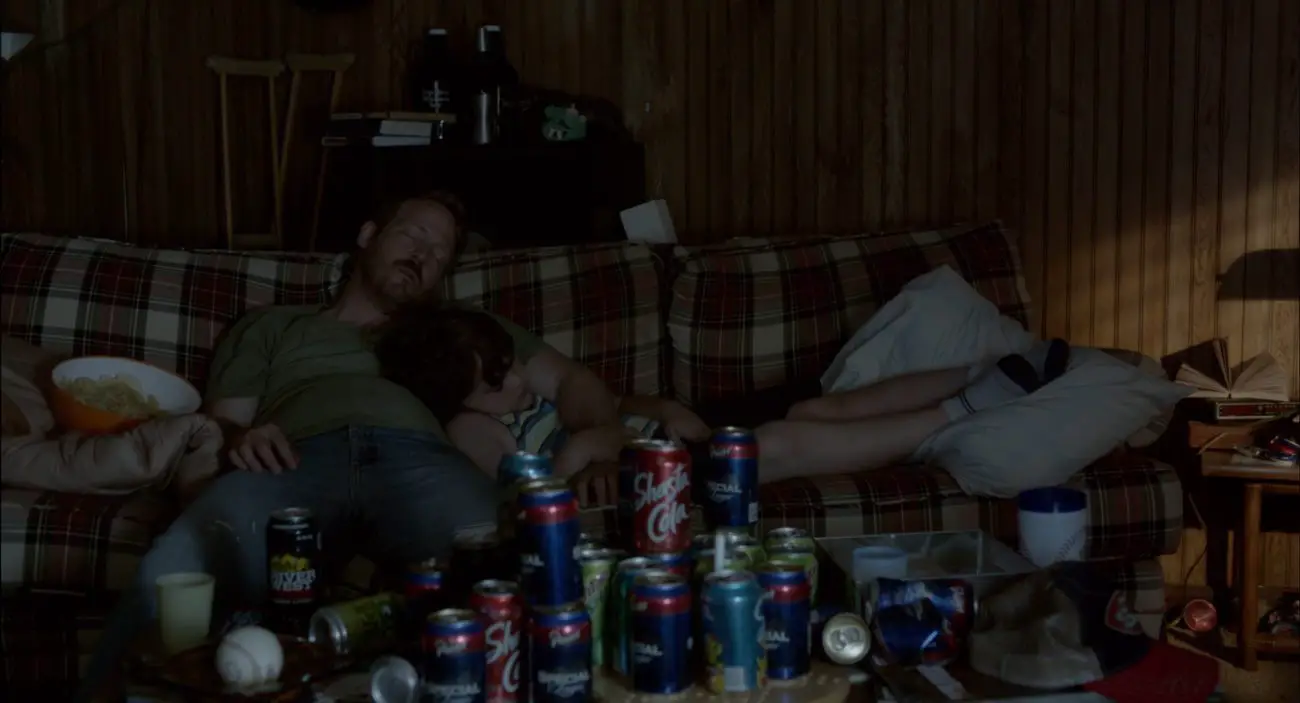Small Town Wisconsin’s native, absent father, and part-time grease monkey Wayne Stobierski may not be cinema’s greatest drunk. After all, the competition is stiff: there’s Dudley Moore’s Arthur, Jimmy Stewart’s Harvey, Billy Bob Thornton’s Bad Santa, Mickey Rourke’s Bukowski in Barfly, Bette Davis’s (Whatever Happened to) Baby Jane, a couple of Norman Maines in various Stars Are Born. Nick and Nora Charles were hardly ever without a drink in hand in the Thin Man comedies. The great Jack Lemmon and Ray Milland in Days of Wine and Roses and The Lost Weekend, respectively. If Wayne Stobierski isn’t destined to the levels of notoriety ascribed to those infamous film drunkards, it’s not for lack of trying.

For most—frankly, nearly all—of Small Town Wisconsin, Wayne (David Sullivan) has a beer glued to his hand. And as nearly anyone with even a smidgen more emotional maturity than he can tell, that’s a problem. It’s a problem at work, where he’s slow to complete repairs. It’s a problem at his various hangouts, where he’s often cut off, and one particular night ends up with a round of car-bowling and a 16-pounder through his own rear window. It’s a problem almost anywhere, given his short fuse and quick fists, hollow as his drunken threats may be. And it’s a real problem as regards the only thing in life he might love as much as a 16-ounce can of Point Special: the son he shares with ex-wife Deidra (Tanya Fischer).

Deidra, having been married to Wayne, knows all too well just how infinitely cyclical and genetically inherited alcoholism can be. Wayne’s dad suffered from the disease, and Wayne’s sister Alicia (Kristen Johnston) moved to Milwaukee; she managed to find some freedom from the cycle of dead-end jobs, ongoing poverty, and endless drinking small-town life can entail. Wayne’s caught in that cycle, and even if he can’t see it, Deidra must know that there’s a good chance he’ll pass that same life on to their son. So she and new husband Stu (David Sapiro) plan to move to Phoenix, where the two of them can raise young Tyler (Cooper J. Friedman) with a better life.

To make a move like that, though, will require sole custody. And with a history of public drunkenness, no permanent employment, no savings and no credit, Wayne finds himself without a case in front of the custody judge. All he can offer Tyler is one last, great weekend together, their last, before Tyler moves with his mother and her husband to Arizona. Never the clearest thinker, Wayne is convinced a Milwaukee weekend at a tony hotel and with first-row seats to the Brewers game will at least keep him in his son’s memory forever. To swing it, Wayne will have to hock his baseball-card collection and pull off an escalating series of little white (and some big) lies.
Yes, that’s rather a flawed plan.
And no, it doesn’t go well.
Director Niels Mueller and screenwriter Jason Naczek rely a lot on the performance of Sullivan to keep viewers’ interest in this cockamamie plan, and for the most part, Sullivan is up to the task. His Wayne clearly loves his son, if not yet enough to change his ways for him. He’ll get off a good one-liner or two or entertain with a drunken pratfall. But for all the film’s good intentions, Wayne’s drunkenness is difficult to bear. To be honest, it’s not funny (the film is billed as a dramedy). It’s sad. If you’ve seen the costs of alcoholism up close and personal, it might be trauma-inducing. Wayne is a perpetual teenager who can’t manage money, can’t manage relationships, can’t manage life. To use the current parlance, “adulting” is simply not in his skillset.

Drinking is. Though Wayne is not great at that, either, for all the practice he gets. More than a couple of nights end up shirtless on a sofa, needing a hair (or three) of the dog, guzzling mouthwash on the way to work or an appointment. Even a drinking buddy like Chuck (Bill Heck), who is enlisted by Deidre as a chaperone on Wayne and Tyler’s Milwaukee weekend, can do the math: Wayne’s drinking has costs way beyond the hundreds of dollars spent on the monthly bar tab.
To keep an audience attentive when the protagonist is drunk, onscreen, for 104 of its 105 minutes, is no easy task. Fortunately, Mueller and Naczek give young Friedman as Tyler plenty of time interacting with Wayne, and if one can forgo the dread of worrying Wayne will jeopardize Tyler’s well-being with one drunken antic or another, the two actors share an affable, sincere chemistry as part-time screw-up dad and quiet kid, always optimistically hoping for the best.
When the threesome finally make it to Milwaukee from their vaguely-defined “up North” home, foiled plans lead to an ad hoc reunion with Wayne’s sister Alicia and her son Matt (Braden Andersen). Alicia and Matt prove non-judgmental and welcoming, and with Wayne, Chuck, and Tyler suggest family can find each other in all sorts of unpredictable, and wholly necessary, ways. It takes a village, as the saying goes, or at least, in Wayne’s case, a few villagers. He needs more raising than does little Tyler. At the film’s close, there is some slim hope Wayne will get what he needs, even if it will surely never be custody.
Filmed in Wisconsin in and around Milwaukee, Mukwonago, Palmyra, and East Troy, with multiple references to bratwurst (Unsinger!), the Brewers (citing “Stormin'” Gorman Thomas as the best centerfielder ever, a stretch, even for a staunch Brewers fan), and beer, Small Town Wisconsin is a touching love letter to the state’s east side and its German-Dutch heritage. Nicholas Larson-Johnson’s score may sound a bit generic but hits the right notes at the right moments, and the alt-country/roots-rock from Warner Wilder adds a rough-hewn authenticity.
Its regionality may limit its appeal beyond the Great-Lakes Rust Belt, but Small Town Wisconsin will surely appeal to anyone familiar with the any part of the prior paragraph. It’s an independent film with a small budget and a limited scope but a big heart. To date, Small Town Wisconsin has garnered its acclaim at smaller film festivals like Buffalo and Beloit, winning more than twenty awards. It will open exclusively at Milwaukee Film’s Oriental Theatre in Milwaukee before its wide release in theaters and on digital platforms beginning June 10.



